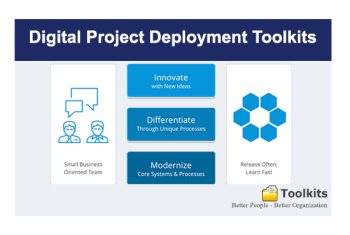There are lots of skills needed to be an effective leader, but none more so than the ability to listen to your colleagues and workers. It’s safe to say a manager who’s a bad listener, is a bad manager. Yet so many employees believe their manager isn’t a good listener – in fact a 2019 readers’ survey by Intermediair identified ‘a failure to listen properly’ as employees’ most common gripe with their boss.
So why is listening such an important skill? Leadership can be defined as the art of motivating people to achieve a common goal. To be able to motivate your team, you need to understand them, know which tasks they enjoy and which they don’t, and take their input into account.
This kind of relationship can only be built if you truly listen to them. Not only this, but listening is a way to embrace fresh insight and ideas too. However, many managers fail to effectively listen. But why is this?
Often managers are too eager to offer help quickly, and start searching for solutions before they are able to allow the other person to finish what they’re trying to say. We can be too ready to interrupt people, instead of truly seeing things from their perspective.
What’s more, many managers are often too focused on themselves or on other matters such as, thinking about the next meeting – we’re distracted by our to-do list, and so on. This means that we only hear part of what we’re being told.
Moreover, we think more quickly than we talk. Our brains can process 300 words per minute, while an average person says 100 to 140 words per minute. This gives us the bandwidth to think about other things in the meantime.
And finally, we’re quick to interpret messages from people through the lens of our own experiences, knowledge and background. This means that we sometimes have a story ready in our head that doesn’t actually relate to the story that the other person is trying to tell us.
So, how can managers improve their listening skills, and thus their management skills?
- Slow down
Slow down and stop thinking about your own responses that you want to give. You first need to show the other person that what they’re saying is important. Give your colleague or employee enough time to finish their story. Where necessary, allow space for silences; that’s no bad thing. - Pay attention
Show the other person that you’re truly listening by making eye contact, nodding or smiling. Also look at the person’s body language. What can you learn from their posture, expression and hands? All this information helps you to truly understand the other person. - Reflect
Briefly summarise or repeat what the other person has said, and ask if that’s correct. This allows you to avoid any misunderstandings. Reflection often feels more uncomfortable for the person doing it than for the person listening to it. People like to hear their own thoughts and feelings repeated back to them. - Ask open questions
To listen effectively, you need to start out with a curious mindset. Most of us think that if we know someone well, we know what’s going on in their head. The reality is that it’s impossible for us to know that. That’s why it’s useful to ask the other person for a more detailed explanation by using open questions (e.g. What happened after that? How did you feel when that happened?). - Banish your preconceptions
Listening is an act of empathy. You’re trying to see the world through the other person’s eyes, and you’re trying to understand the other person’s emotions. This won’t work if you’re already making a judgement while they are still speaking. All kinds of subtle non-verbal signals show the other person that you’ve already formed an opinion. - Listening as a ticket to free education
Everyone has already learned a great deal in their life, or has certain knowledge, experiences and ideas. You can unearth all these insights by being curious in every conversation, and having a genuine desire to learn from the other person.
It’s incredibly important for managers to listen to their staff and the teams around them. Not only can they secure new insights, ideas and perspectives, which can push the business further, they can also maintain harmony and motivation within staff and ensure they are a good people manager.



